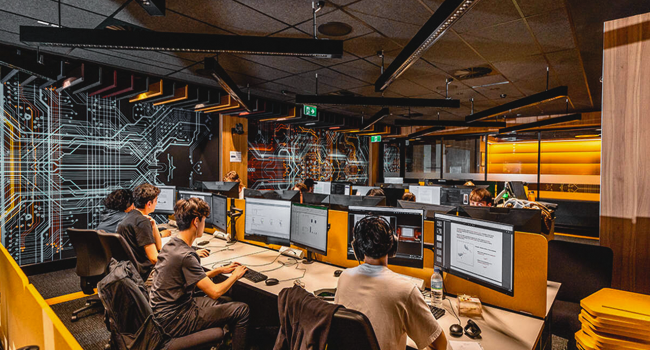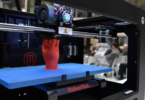Customer system Technology means the proprietary technology of Customer and its licensors, including Customer’s Internet operations design, software tools, hardware designs, algorithms, software, user interface designs, architecture, class libraries, objects and documentation, trade secrets, and any related intellectual property rights throughout the world and also including any derivatives, improvements, enhancements or extensions of Customer Technology conceived, reduced to practice, or developed by Customer.

Examples of computer system technology
Computer technology refers to the hardware, software, and infrastructure that enable the processing, storage, and communication of digital information using computers. It includes many tools and systems, from personal computers to large-scale data centers and cloud computing networks. Here are 12 examples of computer technology:
- The central processing unit (CPU):
The CPU is the primary component of a computer that carries out instructions and performs calculations.
- Random access memory (RAM):
RAM is the memory that a computer uses to store data and program instructions for quick access by the CPU.
- Graphics processing unit (GPU):
The GPU is a specialized processor designed to handle the complex calculations required for graphics and video rendering.
- Hard disk drive (HDD) and solid-state drive (SSD):
Hard disk drive are the primary storage devices for a computer, used to store files, applications, and the operating system
- Input devices:
These include keyboards, mice, touchscreens, and other devices that input data and commands into a computer.
- Output devices:
These include monitors, speakers, and printers used to display and output data and information from a computer.
- Operating systems:
The operating system manages a computer’s hardware and software, providing a user interface and managing the allocation of resources.
- Application software:
This includes software applications for specific purposes, such as word processing, image editing, and video conferencing.
- Networking technology:
This includes the hardware and software to connect computers and other devices to the internet and other networks.
- Cloud computing:
This refers to using remote servers and networks to store and process data and applications, providing flexible and scalable computing resources.
- Virtualization:
This refers to the creation of virtual versions of hardware and software resources, enabling more efficient use of computing resources
- Artificial intelligence (AI) and machine learning (ML):
These technologies enable computers to learn and make decisions based on data and algorithms, providing new capabilities for problem-solving and decision-making.
Computer technology is a broad field that encompasses a wide range of tools, systems, and infrastructure used to process, store, and communicate digital information. Understanding computer technology’s various components and capabilities is essential for working with and using computers in multiple settings.
Uses of computer technology
Computers are used for a wide variety of purposes, including:
- Data processing:
Computers are used to input, process, and output data. This includes word processing, spreadsheet creation, and database management.
- Communication:
Computers are used to send and receive electronic mail (email) and communicate via instant messaging and social media platforms.
- Education:
Computers are used in classrooms and educational institutions to facilitate learning and research.
- Entertainment:
Computers are used to play games, watch movies, and access music and other forms of media.
- Business:
Businesses use computers to manage finances, track inventory, and communicate with customers and clients.
- Science and research:
Computers are used in scientific and research settings to analyze data, simulate experiments, and perform complex calculations
- Medicine:
Computers are used in the medical field to store and access patient records, perform diagnostic tests, and assist with surgeries.
- Military:
Computers are used in military applications to track personnel and equipment, analyze intelligence, and plan and execute missions.
Overall, computers are an essential tool for many aspects of modern life, and their uses continue to expand as technology advances.
Future of computer system technology
Computer technology is experiencing immense changes with extraordinary progress. It’s mind-boggling to think of the possibilities that quantum, AI, and nanotechnology could offer for computing power. What we see in computer development will likely only hint at what’s in store – an exciting period ahead as computers enter modern technologies.
It may be surprising to see how much has shifted from now until the future! There might be no more physical machines like we know today – advanced computing systems could exist within our bodies or pieces of jewelry. Don’t worry; humans will still have control over these technologies; that’s unlikely to change!
We’re living in the future! Robotics and computers have become a part of our everyday lives, providing us with a more luxurious lifestyle. Amazingly, science, technology, and biotechnology advances have brought futuristic dreams to life.
In the next part of the query, business executives understand that they must be ready for the changing technological scenes in the upcoming years. It is essential to remain up-to-date with emerging technologies, interpret their intricacies, and anticipate their transformations.
- Artificial Intelligence:
In the coming years, we can expect to see AI being used in more and more applications, such as chatbots, logistics, self-driving cars, virtual nursing assistants, personalized textbooks and tutors, and even artificial creativity.
- 5G Technology:
5G is about more than just faster download speeds, though. It’s also about making connections more reliable. With 5G, we’re moving closer and closer to a future where everything is interconnected and able to communicate with each other.
- Augmented and Virtual reality:
Retailers are using AR to help customers visualize what furniture would look like in their homes, and medical schools are using VR to give students a more realistic experience of surgeries. The possibilities are endless.
With the development of technologies like 5G and AI, all the innovative possibilities can become a reality, providing us with an entirely new landscape upon which these powerful tools can be harnessed.
Benefits of computer technology
There are many benefits of using the best computer technology available. Here are some of the key advantages:
- Improved performance:
The best computer technology typically offers faster processing speeds, higher memory capacity, and better graphics capabilities. This means users can perform tasks more quickly and efficiently, whether running complex software applications or playing high-end video games.
- Increased productivity:
Users can accomplish more in less time with better performance and faster processing speeds. This can lead to increased productivity, especially in business or work environments.
- Better security:
Advanced computer technology often includes more robust security features like encryption and biometric authentication. This can help protect sensitive information and prevent unauthorized access to data
- Greater reliability:
The best computer technology is often more reliable than older or outdated equipment, which can reduce downtime and improve efficiency.
- Improved user experience:
The latest computer technology often includes user-friendly interfaces and intuitive design, making it easier and more enjoyable.
- Future-proofing:
Investing in the best computer technology now can help ensure that your system remains up-to-date and relevant for longer, reducing the need for costly upgrades or replacements in the future.
Conclusion
Recap of Key Points
From the evolution of computing machines to the future of sustainable computing, computer system technology is an ever-evolving force.
The Ever-Growing Influence of Computer System Technology
As technology advances, the influence of computer systems on our daily lives and global progress is bound to expand.
FAQs
- What is the significance of computer system technology in education?
Computer systems enhance education through personalized learning, online resources, and interactive tools.
- How can individuals contribute to sustainable computing practices?
Individuals can recycle old devices, use energy-efficient hardware, and support companies committed to sustainable practices.
- Are quantum computers available for personal use?
Quantum computers are primarily used for research and specialized applications, not for personal use.
- How can businesses address cybersecurity challenges in computer systems?
Businesses should invest in robust cybersecurity measures, conduct regular audits, and educate employees on security best practices.
- What is the role of computer system technologists in addressing ethical concerns?
Technologists play a vital role in developing and implementing ethical frameworks for technology use, ensuring responsible innovation.






